Staff and other patients become part of your family, with time. I worked things I have never worked before, and with all of the support in the world!
About Mount Regis Center
The center offers residential care, partial hospitalization and intensive outpatient programs. The residential program is a safe place to detox under medical supervision. Medical detox rids your body of addictive substances and takes about three to nine days depending on your situation. You’ll also have group therapy where you’ll learn about the 12 Step model.
If you’re looking for a less structured program and don’t need care 24/7, there’s also a partial hospitalization program (PHP) that’s about 10 to 14 days. You can get help for co-occurring disorders in the PHP as long as your primary diagnosis is substance use disorder.
In all of the programs you’ll deal with trauma and abuse, relationships, understanding the disease process, relapse prevention and aftercare strategies. You’ll also get 12 Step support. There are also experiential therapies like yoga, music, art and equine therapy. Family therapy is often part of your recovery to learn how your addiction affects the family and how they can support you after treatment.
If you need a more structured program than regular outpatient treatment, there’s also an intensive outpatient program (IOP) option. IOP meets three days a week for three hours each day. It’s also a little more flexible because there are afternoon or evening programs to work around your schedule. The program addresses addiction concerns, but you can also get help with some co-occurring mental health disorders.
Facility Overview
Latest Reviews
Rehab Score
Gallery
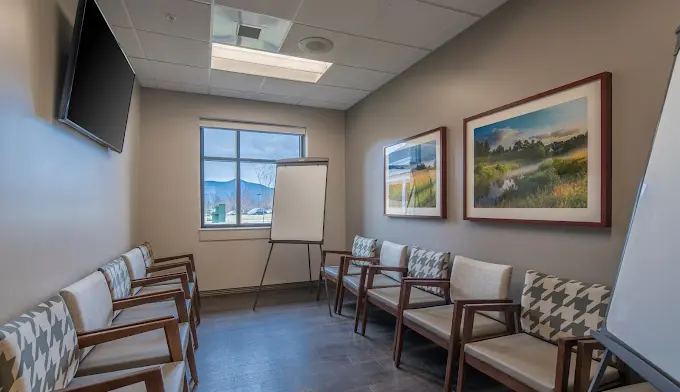
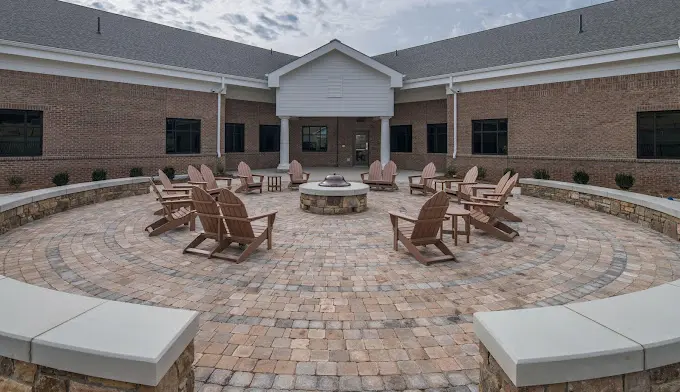
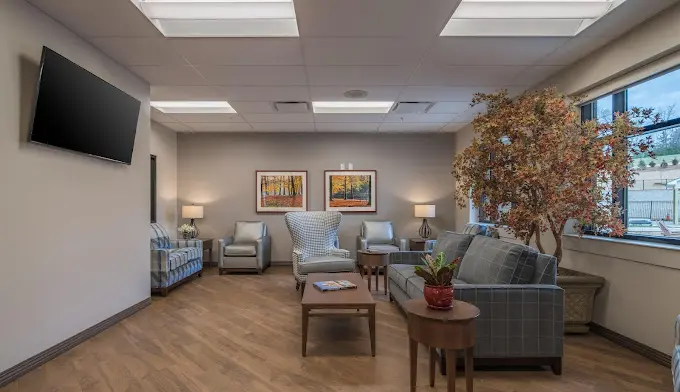
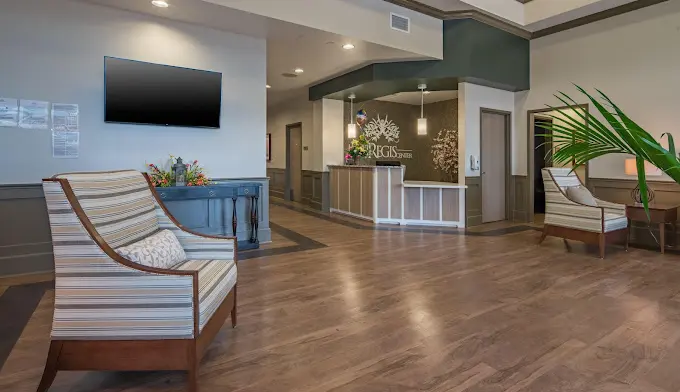
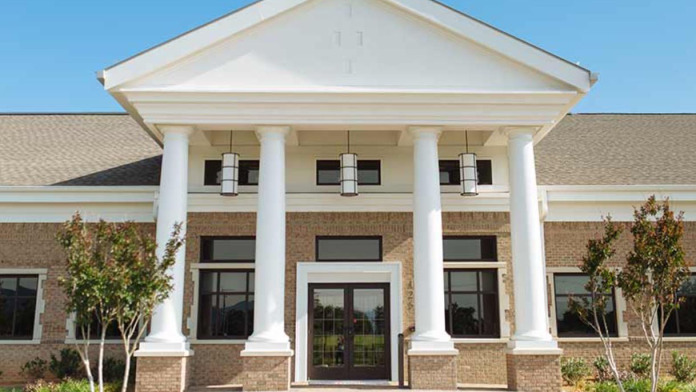
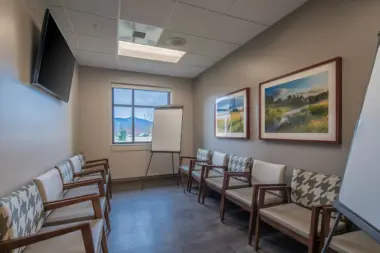
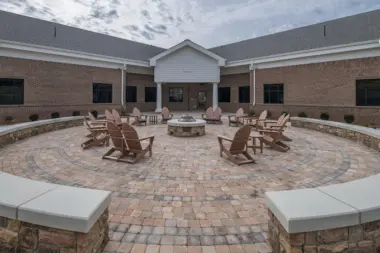
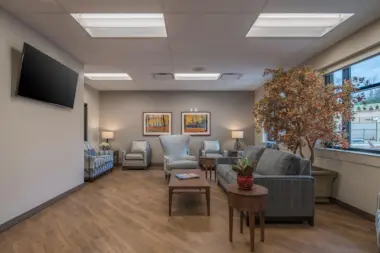
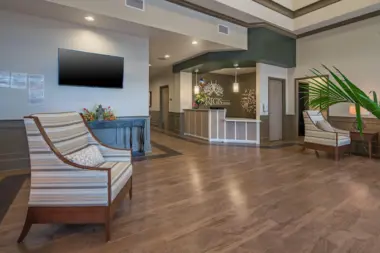
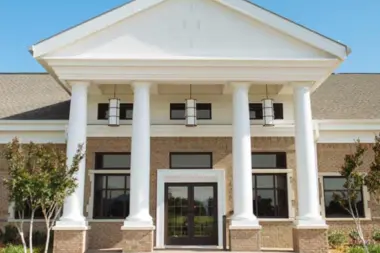
Accepted Insurance
Other Forms of Payment
Private insurance refers to any kind of healthcare coverage that isn't from the state or federal government. This includes individual and family plans offered by an employer or purchased from the Insurance Marketplace. Every plan will have different requirements and out of pocket costs so be sure to get the full details before you start treatment.
Self-pay involves paying for treatment out of your own pocket. You can use savings or credit, get a personal loan, or receive help from family and friends to fund your treatment. If you don't have insurance or your insurance plan doesn't cover a specific program, self-pay can help ensure you still get the care you need.
Addiction Treatments
Levels of Care
Outpatient rehabs offer community-based addiction treatment, enabling clients to remain in their homes while in recovery. Their levels of care typically include partial hospitalization (PHP), intensive outpatient (IOP), standard outpatient, and sober living programming. Most outpatient facilities offer addiction counseling and recovery-focused life skills training. Integrative programs include evidence-based holistic therapies, such as meditation, music therapy, and massage. Facilities specializing in alcohol and/or opioid addiction may also provide medication assisted treatment (MAT).
In order to get away from all the stressors, responsibilities, expectations and triggers associated with your substance use, you can take advantage of the ability to focus exclusively on your rehab efforts away from all these factors in a safe, supportive environment. An environment that provides intense substance abuse treatment using therapeutic approaches whose efficacy have been demonstrated makes an inpatient program the ideal setting for this type of intervention.
Their Intensive Outpatient Program was designed to help those who can remain sober and function well enough to live at home with programming on a part-time basis. The IOP Program is primarily designed for those who have graduated from a higher level of care such as an inpatient program or partial hospitalization program. The individual needs to have reached a stage in recovery that allows them to deal with the normal stress of everyday life, and they must be able to cope with the emotions and issues raised during their time spent in treatment without there being a significant risk of relapse.
Clients participating in a rehab aftercare program receive comprehensive and customized support as they leave high-intensity treatment, reintegrate into their community, and focus on maintaining their sobriety. These programs offer a wide variety of services to align with the client's unique and evolving needs, often including medical, mental health, and social service program referrals. Clients typically develop their drug rehab aftercare plan in conjunction with their case manager and care team.
12-step programs are addiction recovery models based on Alcoholics Anonymous (AA). A number of substance abuse programs (including some drug and alcohol rehab centers) use the 12 steps as a basis for treatment. Beginning steps involve admitting powerlessness over the addiction and creating a spiritual basis for recovery. Middle steps including making direct amends to those who've been hurt by the addiction, and the final step is to assist others in addiction recovery in the same way. 12-Step offshoots including Narcotics Anonymous (NA), Cocaine Anonymous (CA), Dual Recovery Anonymous (DRA), Sex and Love Addicts Anonymous (SLAA) and Gamblers Anonymous (GA).
A partial hospitalization program (PHP) is a short-term form of intensive rehab, usually for those with acute symptoms that are hard to manage but don’t require 24-hour care. PHPs have structured programming (i.e. individual and/or group therapy), and usually meet 3-5 days a week for around 6 hours (i.e. 9am-3m). Some PHPs are residential (patients sleep on site) and some are not, so patients sleep at home. PHPs can last from 1-6 months, and some offer transportation and meals.
24-hour clinical care in Virginia features a highly trained team of professionals to treat your physical, mental, and emotional needs. Doctors and nurses are available to prescribe and administer medications. Psychologists and counselors provide professional counseling. Other experts such as nutritionists and addiction specialists may also offer support. This 24/7, comprehensive care is designed to give you the support you need to begin a successful recovery.
Mount Regis Center offers a medically monitored inpatient drug and alcohol detoxification program. This means their physicians and nurses will carefully asses your drug and/or alcohol situation, develop an addiction detox plan especially for you and guide you through your individualized plan. After you complete their detox program, they’ll help you transition into one of their other programs.
Treatments
Many of those suffering from addiction also suffer from mental or emotional illnesses like schizophrenia, bipolar disorder, depression, or anxiety disorders. Rehab and other substance abuse facilities treating those with a dual diagnosis or co-occurring disorder administer psychiatric treatment to address the person's mental health issue in addition to drug and alcohol rehabilitation.
Substance rehabs focus on helping individuals recover from substance abuse, including alcohol and drug addiction (both illegal and prescription drugs). They often include the opportunity to engage in both individual as well as group therapy.
Alcohol use disorder, which is often used interchangeably with the term alcoholism, is a chronic, relapsing condition. While it is characterized by harmful patterns of alcohol use and physical dependence on the substance, the condition can be managed and treated. Effective alcohol rehab in Virginia is available in a variety of formats, including inpatient, outpatient, medication-assisted therapy, and mutual-support groups.
When you enroll in drug rehab in Virginia, a treatment plan is designed by professional staff in order to help you overcome drug addiction and modify addictive behaviors. This may include evidence-based treatments, group and individual therapy, and relapse prevention.
Programs
Adult rehab programs include therapies tailored to each client's specific needs, goals, and recovery progress. They are tailored to the specific challenges adult clients may face, including family and work pressures and commitments. From inpatient and residential treatment to various levels of outpatient services, there are many options available. Some facilities also help adults work through co-occurring conditions, like anxiety, that can accompany addiction.
Young adulthood can be an exciting, yet difficult, time of transition. Individuals in their late teens to mid-20s face unique stressors related to school, jobs, families, and social circles, which can lead to a rise in substance use. Rehab centers with dedicated young adult programs will include activities and amenities that cater to this age group, with an emphasis on specialized counseling, peer socialization, and ongoing aftercare.
Serving in the military is both mentally and physically challenging, and can result in trauma that persists even after combat ends. Military programs are tailored to the specific and often complex needs of active duty personnel, veterans, and military families. Clients often access these programs through the U.S. Department of Veterans Affairs (VA).
Clinical Services
This therapy works to alter the person’s expectations related to what positive effects the drug has on their lives and replace them with accurate expectations and thought related to the use of the drug. Increasing coping skills for various life stressors is also an important goal.
Equine therapy, aka equine-assisted therapy (EAT), is a form of experiential therapy that involves interactions and activities with horses. It does not necessarily involve riding horses, but all activities related to horses, such as feeding, grooming, haltering and leading them. A mental health professional frequently oversees the activities (often in conjunction with a horse professional), and helps patients process their thoughts, feelings, and behavior patterns during and/or after the interaction.
Group therapy is any therapeutic work that happens in a group (not one-on-one). They use a small groups approach to rehab. Groups are used to process common issues people have when addicted to substances as well as provide psycho-education in the form of topics based presentations and skills-based approaches.
In individual therapy, a patient meets one-on-one with a trained psychologist or counselor. While they are primarily a group based program, they understand the need for one on one attention when battling a heroin addiction and provide short individual sessions as necessary.
Motivational interviewing in Virginia allows clients to examine their lives and consider their options. It is particularly useful if the client lacks confidence in their ability to change or is feeling uncertain about their desire to change.
Trauma therapy helps you understand and manage the emotional and physical responses that often follow witnessing or experiencing traumatic events. Using therapeutic interventions, your therapist works with you to reframe that experience, which in turn reduces your anxiety and helps you regain control over your life.
Family therapy focuses on explaining how your addiction developed, the purpose it served, your treatment, and plans for discharge while processing issues relate to the substance use in all members. This helps the entire family understand each other and allows them to provide mutual support in the future.
Life skills trainings involve all the skills a person must have in order to function successfully in the world. These include time management, career guidance, money management, and effective communication. Truly successful addiction recovery is based on the ability to not only live substance-free, but to thrive. Life skills teaches the practical necessities of functioning in society, which sets clients up for success in life, and therefore sobriety.
Nutrition therapy teaches you what to eat and not eat, how to grocery shop, how to cook easy nutritious meals, and how to use food as medicine to address your health issues. These skills will help speed up your recovery process and reduce the risk of relapse.
Recreational therapy is often a part of a holistic treatment center program for drug and alcohol addiction in Virginia. It offers structured activities that replace substance use with positive experiences like swimming, painting, and hiking. These encourage social interactions, promote physical and mental health, and help reduce stress, all of which are factors that are important to help you rebuild your life.
Experiential therapy is a form of therapy in which clients are encouraged to surface and work through subconscious issues by engaging in real-time experiences. Experiential therapy departs from traditional talk therapy by involving the body, and having clients engage in activities, movements, and physical and emotional expression. This can involve role-play or using props (which can include other people). Experiential therapy can help people process trauma, memories, and emotion quickly, deeply, and in a lasting fashion, leading to substantial and impactful healing.
Amenities
-
Private Setting
-
Yoga Studio
-
Gym
-
Residential Setting
Staff & Accreditations
Staff
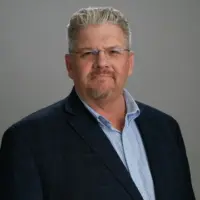
Curt Lane
CEO
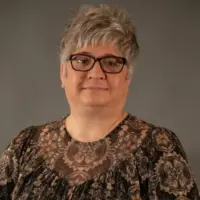
Sonya Bockman, MBA, CPA
CFO

Christy Meeks, MS
Director of Business Development

Brigette Funk, LPC, LSATP
Director of Clinical Services
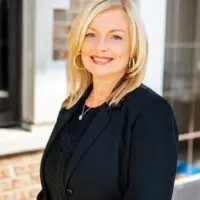
Monique Pratt
Director of Nursing
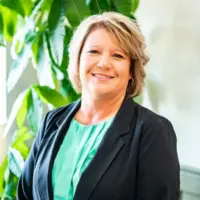
Cheryl Gill, LPN
Assistant Director of Nursing
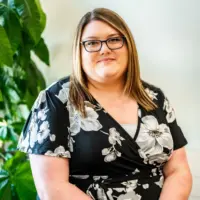
Stevie Phillips, BS, QMHP-A, CSAC-S
Director of Human Resources
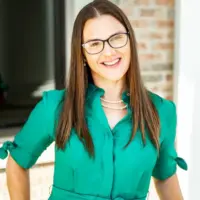
Ellarie Rose Duke, CPSS
Director of Utilization Review
Accreditations

The Commission on Accreditation of Rehabilitation Facilities (CARF) is a non-profit organization that specifically accredits rehab organizations. Founded in 1966, CARF's, mission is to help service providers like rehab facilities maintain high standards of care.
CARF Accreditation: Yes
Accreditation Number: 262202

The National Association of Addiction Treatment Providers (NAATP) is a professional association that represents organizations in the field of addiction services. Founded in 1978, NAATP's mission is to advance addiction services and ensure that high-quality addiction treatment is available and accessible.
NAATP Member: Yes
Member ID: 3515

The Substance Abuse and Mental Health Services Administration (SAMHSA) is a branch of the U.S. Department of Health and Human Services. Established in 1992 by congress, SAMHSA's mission is to reduce the impact of substance abuse and mental illness on American's communities.
SAMHSA Listed: Yes
Contact Information
125 Knotbreak Road
Salem, VA 24153








